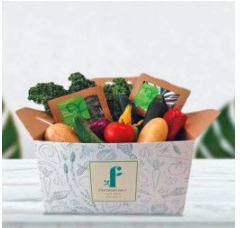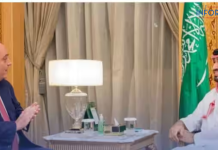Innovative business models that promote zero waste and support local produce
The saying “buy local, eat local” has been gathering steam all over the world. Local food is more flavourful as it is fresh and picked within 24 hours of your purchase and the money spent on local produce stays close to home, reinvested with businesses and services in your community. It is also a known fact that purchasing locally grown foods you help maintain farmland and green and/or open space in your community. Isn’t it then a surprise that despite the UAE having 150,000 hectares of farmland, we end up importing 90 per cent of our food and only 10 per cent is procured from the local farms? It was this thought that led UAE entrepreneur Atul Chopra to launch the Fresh on Table app last year.
Working with local farms
Today Fresh on Table works with local farms to bring the freshest farm and agri-based artisanal food to UAE consumers on a hyper-local model. Chopra says he sources fresh food, including fruits, vegetables, dairy products, eggs, meat, poultry, fish, seafood and even local artisanal food-based products, and delivers them within 24 hours to the consumer.
“The Covid-19 pandemic made many people realise how important it is to eat healthy. UAE residents, especially the millennials, are very health conscious and they are eager to have more vegan and organic options on their table,” says Chopra. He also realised that with a very high mobile penetration, consumers could easily use technology to access fresh produce.
“We started with the hospitality sector, where we took chefs to the local vegetable and fish farms and showed them the options available,” he says. Today, Fresh on Table works with 25 independent farms, such as Emirates Hydroponics in Al Bahia and the Gracia Farms, as well as many farms under the belt of Abu Dhabi Agriculture and Food Safety Authority (Adafsa).
No cold chain
“What is unique about us is that we have cut out the concept of the cold chain. You place an order on the app, it is received by us and then the order is accepted by the farm. Then the farm sends the products to the consolidation centre and we then deliver it to homes,” says Chopra. “Also, by cutting out the cold chain – we make products 15-20 per cent cheaper and sell it as a fair price.”
Zero waste
Not just eating local, the concept of sustainability has also been prioritised by Dubai-based importer and distributor Early Bird, which has started a zero-waste movement with its bio-certified mineral water range, Elisabethen Still. Managing partner Cornelius Durm says the German mineral water in high-calibre glass bottles works on a deposit system that results in zero waste for the UAE.
The empty bottles and packing crates are taken back from the customers and returned to the factory. There the bottles get cleaned, sanitised and filled again. Each glass bottle is on average used more than 50 times, while the packing crates have an average lifespan of more than 100 uses.
“Even the bottle caps can go back on the empty bottles and will be recycled. This leads to zero waste,” says Durm.
He explains that the initiative also aims to help create a culture of sustainable responsibility that “we hope will see more and more brands opt to avoid creating more pollution and toxic waste”.




